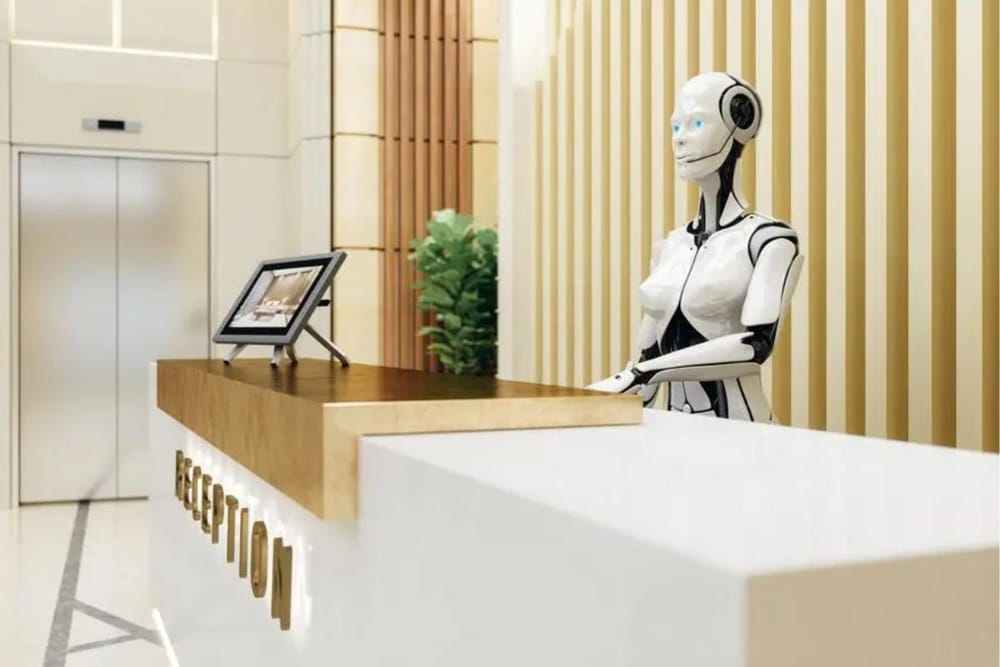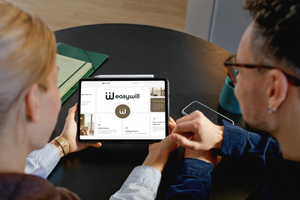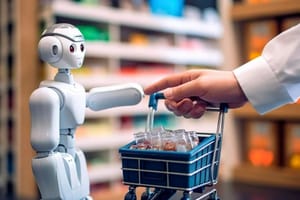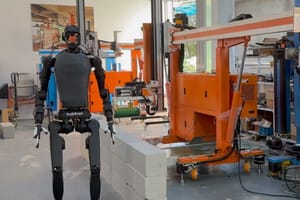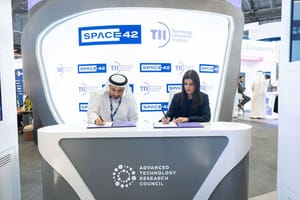Robots are increasingly being integrated into public life in the UAE, with government entities and companies encouraged to use robotics and artificial intelligence to improve service efficiency and business development across all sectors.
The presence of robots in public places, government and private entities, and institutions has become commonplace, as they are seen as official employees capable of meeting requirements and completing transactions with ease, speed, and extreme accuracy.
Yesterday, the Ministry of Finance announced the provision of 39,000 human work hours through adopting Robotic Process Automation (RPA) to process over 1.8 million transactions with an accuracy exceeding 98 percent. This has led to significant improvements in productivity and efficiency, taking a further step towards transitioning to a knowledge-based and innovative economy. It aligns to make the UAE the world's best country by its centenary in 2071.
The Ministry of Finance has completed the second phase of its internal transformation journey towards RPA.
The ministry now utilizes robots (software applications performing automated tasks), with chatbots being one of the most common types. These manage phone or online interactions between institutions and their clients. The Ministry of Finance uses them on its digital procurement platform, speeding up processes from 60 days to 6 minutes. This fosters greater competition for government contracts by allowing more small companies to participate.
Today, the use of such robots is increasingly spreading in the public sector as government entities seek to improve efficiency and customer services. The Emirates Health Services Foundation announced equipping its health facilities with a "blood drawing robot," making it the first regional institution to use this robot. Studies indicate its ability to save 80 percent of the time required by the staff and 50 percent of patients waiting time for blood drawing services.
This announcement was made during the "Arab Health 2024" exhibition and conference, currently ongoing in Dubai, where the foundation participates as a strategic partner in healthcare services with four main axes.
The "blood-drawing robot" is not just a mechanical marvel; it's a testament to the UAE's focus on cutting-edge technology. Equipped with artificial intelligence and infrared technology, it promises efficient and accurate service, setting a new standard for healthcare automation.
Recognizing the global demand for robotics expertise, the Mohamed bin Zayed University for Artificial Intelligence (MBZUAI) has taken a forward-thinking step. Launching two new departments dedicated to robotics and computer science, the university seeks to cultivate the next generation of AI and robotics leaders. Their focus on human-centric and autonomous robots aligns perfectly with the country's vision for a technology-driven future.
Dubai's status as a magnet for tech giants was further cemented in March 2023 with the opening of UiPath's regional headquarters. This leading robotic process automation company chose the UAE for its dynamic scene, solidifying the country's position as a global innovation hub.
The UAE's embrace of robots extends far beyond healthcare and academia. They act as educational consultants, lecturers, broadcasters, surgeons, pharmacists, customer service representatives, and even maritime rescuers! This diversity showcases the boundless potential of robotics, transforming sectors across the board.
Dr. Ali Al Belooshi, Consultant Orthopedic and Joint Replacement Surgeon and Vice President of the Orthopedic Division at the Emirates Medical Association, exemplifies the success stories enabled by robotic technology. Since embracing AI and robotic tools, he has set a world record, performing over 1500 artificial joint surgeries with a remarkable 99 percent success rate. This incredible achievement highlights the life-changing potential of robot-assisted surgery.
Robotic surgery is thriving in the UAE. The Ministry of Health and Prevention has been at the forefront, with Al Qassimi Hospital in Sharjah performing the first successful robotic cardiac catheterization in 2014. Expanding beyond heart procedures, the ministry also launched a robotic surgery programme for women's health and childbirth. Further enhancing patient care, Fujairah Hospital adopted robotic pharmacy services to minimize medication errors and waiting times.
The media landscape in the UAE is witnessing a robotic transformation. Dubai Media Incorporated broke ground with the first Arabic-speaking AI news anchor powered by intelligent algorithms. Abu Dhabi Media Company followed suit, unveiling its own AI news anchor capable of bilingual delivery and featuring expressive facial interactions. These breakthroughs are shaping the future of news consumption in the region.
Law enforcement in the UAE has embraced robotic innovation. In 2017, Dubai Police made history with the world's first multilingual, emotion-sensing robot officer. Capable of understanding body language, recognizing gestures, and assisting the public in six languages, this robot redefined police-citizen interaction. Furthering AI integration, the Abu Dhabi Police Traffic and Patrols Directorate deployed intelligent robotic assistants for traffic awareness initiatives throughout 2023.
The intelligent robot developed by the Abu Dhabi Police General Command is not just a traffic cop. It actively participated in events like the Gulf Traffic Week, Jiu-Jitsu Championship, and Summer Exhibition, educating audiences with traffic advice, digital awareness films, and fun ways to improve traffic culture through AI.
Protecting lives on Dubai's stunning beaches is a unique job, and the robotic lifeguard does it flawlessly. This AI-powered marvel tackles challenging waves and currents, rescuing up to five people simultaneously, a feat beyond most human rescuers.
Analyzing cement just got smarter. The Central Dubai Laboratory now uses an automated robot chemist, employing X-ray technology and sophisticated AI to accurately test all types of cement, ensuring construction quality and safety.
Polluted waterways are no match for the "Pixie Drone," a UAE-approved floating robot. This eco-champion effortlessly collects marine waste for up to six hours in both fresh and saltwater, swallowing up to 160 litres of liquid waste at a time.
The robot has been integrated into customer service departments of official entities. The Digital Dubai Authority, introduced the Rashid chatbot, offering users comprehensive information regarding procedures, documents, and requirements for their diverse transactions. This initiative has extended to include deploying a robot for cleaning duties at Dubai Metro stations.
News Source: Emirates News Agency
